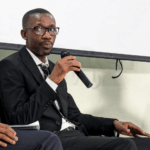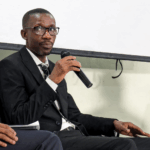
Men diagnosed with prostate cancer have every reason to remain hopeful, as modern treatment options now ensure good recovery and quality of life, according to Dr Isaac Asiedu, Consultant Urologist at the Korle Bu Teaching Hospital (KBTH).
Speaking on Joy FM’s Super Morning Show as part of Joy Cancer Awareness Month, on Wednesday, October 15, Dr Asiedu said Ghana now has advanced treatment options comparable to any centre in the world.
“Every treatment for prostate cancer that you can find anywhere in the world can be found here in our centre at Korle Bu for surgery, radiotherapy, brachytherapy, and immunotherapy,” he said.
He outlined three major stages of prostate cancer: localised, locally advanced, and metastatic, and explained that each stage requires a different form of treatment.
For early or localised prostate cancer, the disease remains within the prostate. “At this stage, the patient can undergo surgery called radical prostatectomy, where the prostate is completely removed,” he said.
Other treatment options include radiotherapy, either through external beam or brachytherapy, where tiny metallic seeds are placed inside the prostate to release small doses of radiation that kill cancer cells.
“The radiation remains confined within the prostate, so people around the patient are not affected,” he said.
For older men or those whose cancers are less aggressive, active surveillance or watchful waiting may be advised.
“We monitor the disease closely through regular tests. Some may never need surgery because their disease doesn’t progress,” he said.
When the cancer has spread to nearby tissues or organs, such as the bladder or rectum, treatment usually combines radiotherapy and hormonal therapy to suppress the hormone testosterone, which fuels cancer growth.
“Testosterone helps prostate cancer to grow. So, we suppress its production using medication, and in very advanced cases, surgery to remove the testes may be required to save the patient’s life,” Dr Asiedu explained.
He also shared that some patients arrive at the hospital when the disease is very advanced, sometimes even paralysed.
“If they come within the first three weeks, we can often help them walk again after treatment,” he said.
Addressing common fears among men, Dr Asiedu gave reassuring statistics: “More than 99% of our patients regain their sexual function and ability to control urine within six months after surgery,” he said.
He acknowledged that men often worry about losing sexual function but urged them to prioritise survival and recovery.
“As surgeons, our priority is to remove all the cancer first, then ensure you regain control and function. Men usually reverse it, erection first, cancer last, but staying alive must come first.”
“There is hope for prostate cancer. If you get tested early, treatment is effective, recovery is strong, and you can live a full life again.”
- President Commissions 36.5 Million Dollars Hospital In The Tain District
- You Will Not Go Free For Killing An Hard Working MP – Akufo-Addo To MP’s Killer
- I Will Lead You To Victory – Ato Forson Assures NDC Supporters
Visit Our Social Media for More




